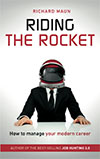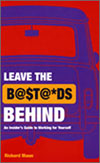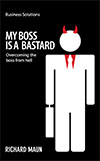better business blog
Tips and stories to add value to you and your organisation

Zero Budgeting
I’ve noticed that if I have £10 in my wallet I’m tempted to spend £10 and if I have nothing, I spend nothing.
It feeks like now I have the cash with me it would be a shame not to spend it. Obviously I put the money in my wallet with the aim of spending it, so now I’ve found something interesting to buy (probably a big baguette and a piece of cake from a tempting deli) I’m going to buy it.
If, on examining my wallet, I find it to be cashless, I often remember that I have bread at home and I can wait for a while before eating. I think more objectively about my purchasing decision.
I like cash. It’s evidence that hard work pays off. Profits in your hand!
Plastic cards have their uses, but a tap-and-go world seems to lack the sense of connection that we get with cash.
And as they say in business …cash is king!
Which leads me to think about budgets. Carrying cash, before cards came on the scene, meant you had to think about how much you were going to spend and if you ran out of cash, that was the end of your shopping trip.
We learned to budget. We learned that we couldn’t over spend.
In business though people often make the mistake of over spending. They don’t mean to, but they end up being caught out by their own budgets.
For example, in the next financial year they forecast an increase in sales. This will generate more profit, so they budget for higher overheads. Maybe to justify the purchase of a shiny new car.
The car is bought before the sales materialise, because once a forecast is set people can be optimistic and assume it’s as good as money in the bank.
And because they have budgeted for a car it’s within their reach now.
When the sales take longer to arrive, or never arrive, their business takes a hit and suddenly the car becomes an expensive and unsupportable luxury. However the lease has been signed so it’s not going back. You’re stuck.
The solution is to employ a zero budget. In this case this means setting a car budget of zero and only signing up to the deal once the money is in the bank.
Parkinson’s law has it that ‘work expands to fill the time available’ and we could suggest a Maun’s law that runs…
‘Expenditure increases to fill the budget set for it.’
So if we set a budget of zero we have to justify each purchase and we have to think before we buy.
A zero budget forces us to make sure we are getting good value for each purchase. Whereas a large and optimistic budget can make us lazy and we stop thinking about value-add and just repeat the same old spending patterns.
There will be many things in our business that we have to budget for, such as heat and light and fixed staffing costs. That makes good sense.
However, if we look at more optional costs such as travel, insurance, financial services and marketing then we could zero all of them and start over.
Do we really need that insurance? Are we getting the best deal, or just allowing last year’s premium to roll over into a new year?
Do we really need to spend the same this year on marketing as we did last year?
A fixed budget will generally prompt us to answer ‘yes, let’s carry on’, whereas a zero budget tends to force us to evaluate our future spending on more objective terms.
I’ve recently re-set my budgets for financial services and have started with zero and asked myself what I have to buy and if I am really getting value for money. This has prompted me to look around for new suppliers and to ask existing ones for a discount.
Changing my budgeting approach has generated useful thinking for me and will save me money in the next financial year.
If only I could set a zero budget for cake, then I would be truly on top of things!
So, this week we can all have fun with zeros in our business planning. Money is there to be saved!
Next week: Brand You
e-publishing
Click icon for details


recent posts
browse archive
books
Click cover to view details on Amazon
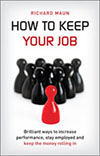
How to Keep Your Job
Brilliant ways to increase performance, stay employed and keep the money rolling in
Published 2011 Marshall Cavendish
208pp
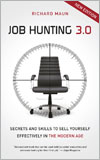
Job Hunting 3.0
Secrets and skills to sell yourself effectively in the Modern Age
Published 2010 Marshall Cavendish
260pp

 RSS
RSS